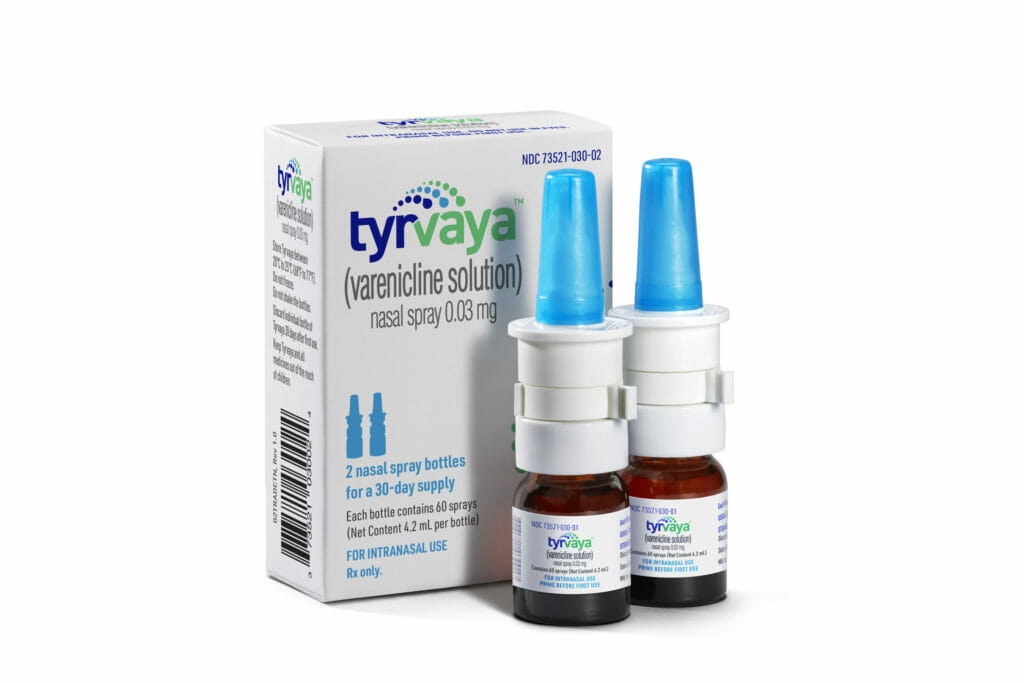
The Food and Drug Administration has approved a first-of-its-kind nasal spray to treat chronic dry eye disease, a condition often diagnosed in older adults.
The medication will be available by prescription under the brand name Tyrvaya beginning in November, developer Oyster Point Pharma announced Monday. Sprayed twice daily into each nostril, it significantly decreases eye dryness at four weeks, clinical trial results have shown.
Tyrvaya is a cholinergic agonist, and works by activating a nerve pathway that can increase the amount of tear film that normally helps lubricate the eye.
The approval marks a milestone for patients, Jeffrey Nau, Ph.D., MMS, president and CEO of Oyster Point Pharma, said in a statement. The drug provides a new treatment option “with a differentiated route of administration” through the nose, he said.
Trial participants had a range of mild, moderate or severe dry eye disease and their ages skewed older, with a mean age of 61 years. Sneezing was the most common adverse reaction — reported in 82% of participants — followed by throat and nose irritation, the company reported.
Dry eye disease occurs when eyes don’t naturally make enough tears to stay lubricated. The condition can have many causes. It occurs in millions of Americans each year, according to the National Institutes of Health. Symptoms include a burning, dry or scratchy feeling; blurry vision and red eyes.
The condition usually is treated with the use of lubricating eye drops, but the results are temporary. Longer-lasting gel lubricants can result in temporary blurred vision.
As many as 30% of long-term care residents have dry eye disease, or use ocular lubricants, according to a study from Monash University in Melbourne, Australia. Frailty and the use of one or more medications known to cause dry eyes was linked to an increased risk of developing the condition or use of ocular lubricants, the researchers found. The inverse was found for participants with dementia, however.




